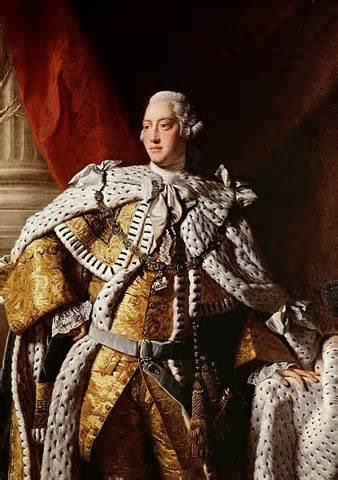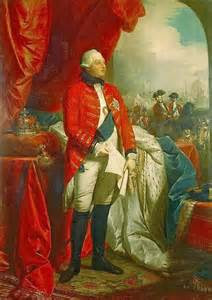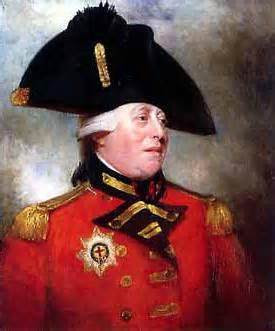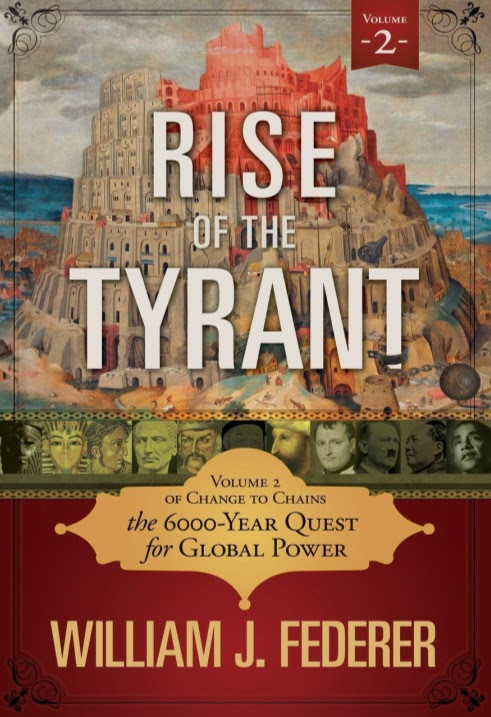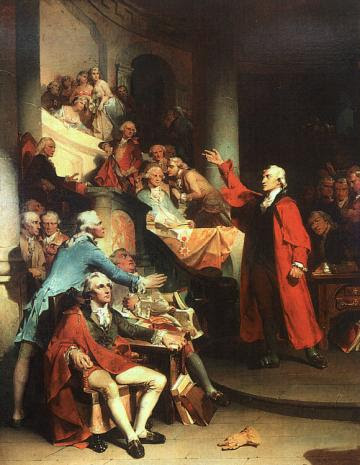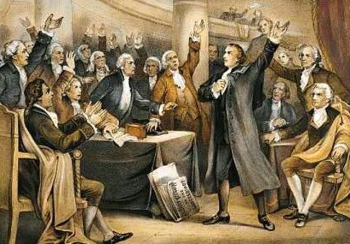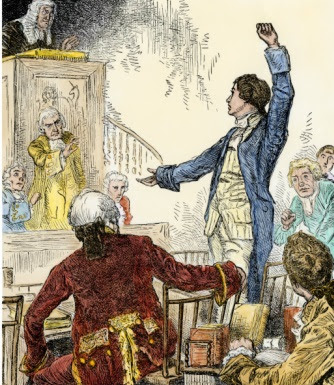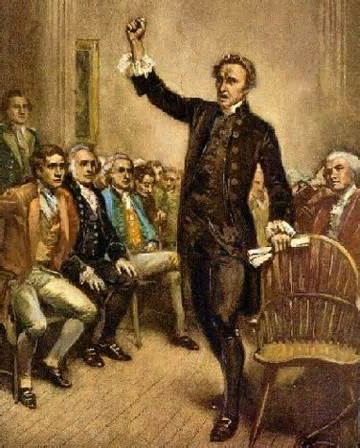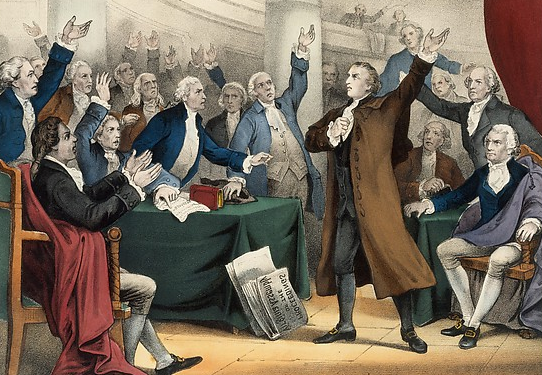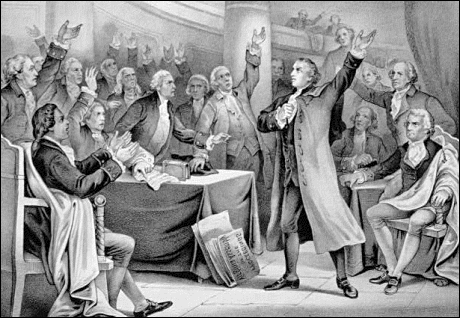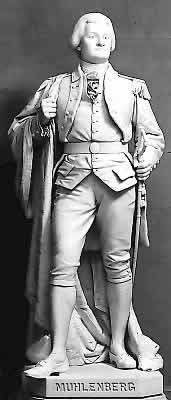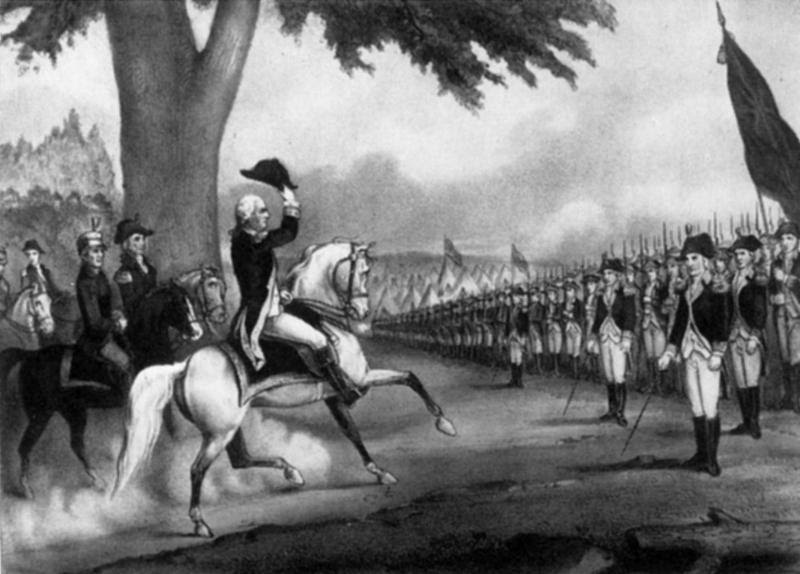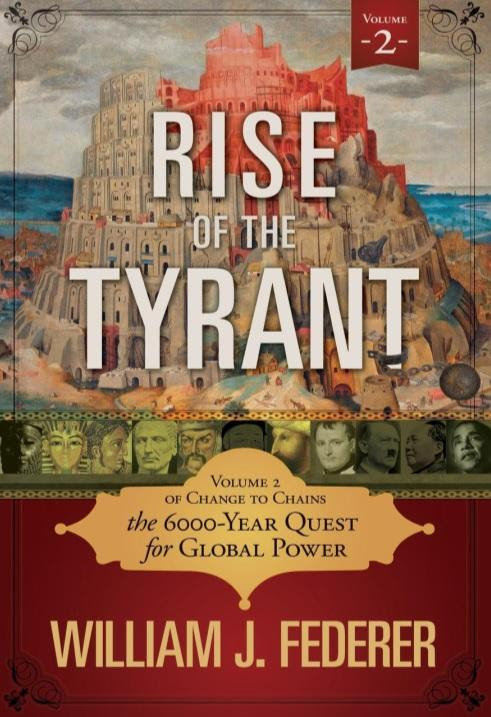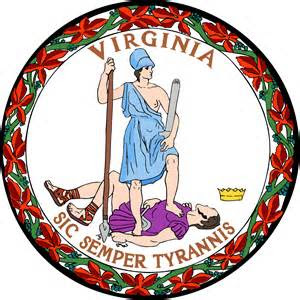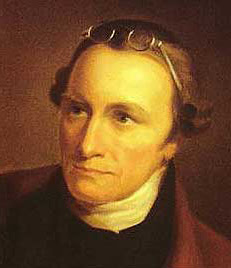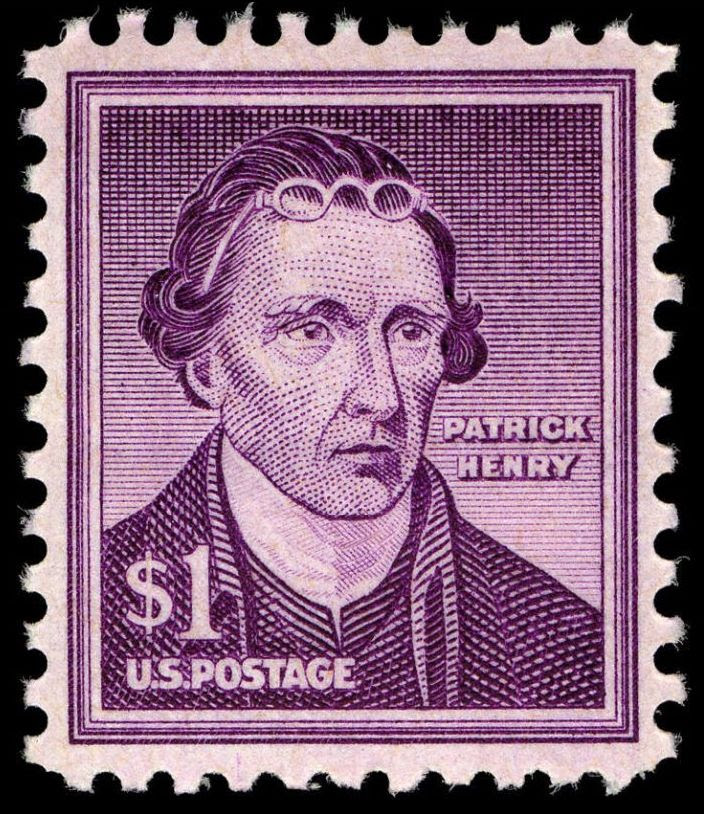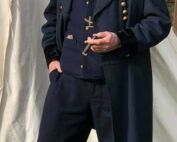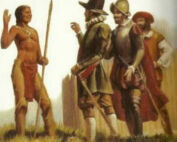Patrick Henry, “I know not what course others may take; but as for me – American Minute with Bill Federer
Patrick Henry, “I know not what course others may take; but as for me, give me liberty or give me death.”
Permission to repost by William J. Federer – American Minute
|
American Minute with Bill Federer
“Give me liberty or give me death…” -Patrick Henry … “My great objection to this Government is that it does not leave us the means … of waging war against tyrants”-1788, Virginia Ratifying Convention
|
|
The Declaration of Independence indicted King George III because: “He has obstructed the administration of justice …” “He has made judges dependent on his will alone …” “He has erected a multitude of new offices, and sent hither swarms of officers to harass our people …” “… He has kept among us, in times of peace, standing armies … independent of and superior to the civil power …” “He has combined … to subject us to a jurisdiction foreign to our constitution … “Giving his assent to their acts of pretended legislation … for imposing taxes on us without our consent …” “For depriving us in many cases, of the benefits of trial by jury ...” “… Establishing therein an arbitrary government … introducing the same absolute rule into these colonies …” “For … altering fundamentally the forms of our governments …” “He has excited domestic insurrections amongst us …” “In every stage of these oppressions we have petitioned for redress … Our repeated petitions have been answered only by repeated injury. A prince whose character is thus marked by every act which may define a tyrant, is unfit to be the ruler of a free people.” The King of Great Britain oversaw the enactment of: 1764 Currency Act, Rise of the Tyrant – Volume 2 of Change to Chains: The 6,000 Year Quest for Global Power On MARCH 23, 1775, Patrick Henry spoke to the Second Virginia Convention, which was meeting in Richmond’s St. John’s Church due to British hostilities:
I know of no way of judging of the future but by the past. And judging by the past, I wish to know what there has been in the conduct of the British ministry … to justify those hopes with which gentlemen have been pleased to solace themselves … … Suffer not yourselves to be betrayed with a kiss … Let us not deceive ourselves, sir. These are the implements of war and subjugation; the last arguments to which kings resort. I ask gentlemen, sir, what means this martial array, if its purpose be not to force us to submission? Has Great Britain any enemy, in this quarter of the world, to call for all this accumulation of navies and armies? No, sir, she has none. They are meant for us: they can be meant for no other. … They are sent over to bind and rivet upon us those chains which the British ministry have been so long forging … Let us not, I beseech you, sir, deceive ourselves. Sir, we have done everything that could be done to avert the storm which is now coming on. We have petitioned; we have remonstrated; we have supplicated; we have prostrated ourselves before the throne … … Our petitions have been slighted; our remonstrances have produced additional violence and insult; our supplications have been disregarded; and we have been spurned, with contempt, from the foot of the throne …” Patrick Henry continued: “There is a just God who presides over the destines of nations … who will raise up friends to fight our battle for us.
Is life so dear, or peace so sweet, as to be purchased at the price of chains and slavery? Forbid it, Almighty God! I know not what course others may take; but as for me, give me liberty or give me death.” After Patrick Henry ended his speech, there was stunned silence for several minutes. Virginia delegate George Mason stated of Patrick Henry’s speech: “He is by far the most powerful speaker I ever heard. Every word he says not only engages but commands the attention, and your passions are no longer your own when he addresses them … He is, in my opinion, the first man upon this continent, as well in abilities as public virtues … Had he lived in Rome about the time of the first Punic War … Mr. Henry’s talents must have put him at the head of that glorious commonwealth.” Present at Patrick Henry’s speech was 29 year old Lutheran pastor, John Peter Muhlenberg, who had been elected to the Virginia House of Burgesses. Inspired, he approached George Washington, who made him a colonel and told him to raise a regiment of troops. Muhlenberg recruited 300 men from his church and surrounding churches to form the 8th Virginia Regiment. Muhlenberg’s statue is in the U.S. Capitol’s Statuary Hall. After Patrick Henry’s speech, Virginia’s Provincial Congress passed a resolution for self-defense: “Resolved, that a well regulated militia composed of gentlemen and yeomen is the natural strength and only security of a free government; that such a militia in this colony would forever render it unnecessary for the mother country to keep among us … any standing army of mercenary forces, always subversive of the quiet, and dangerous to the liberties of the people.”
PATRICK HENRY’S WARNING Patrick Henry was the five-time Governor of Virginia. Virginia’s State Seal has a female figure personifying Virtus, the Roman Republic’s attribute of virtue, with her foot victoriously crushing the neck of a tyrant. The Latin motto on the Seal, Sic semper tyrannis, means “Thus always to tyrants.” On June 5, 1788, when Virginia was holding its convention to ratify the U.S. Constitution, Patrick Henry gave a warning: “My great objection to this Government is, that it does not leave us the means of defending our rights, or of waging war against tyrants … There is to be a great and mighty President, with very extensive powers — the powers of a king … This Constitution … squints towards monarchy … Your President may easily become king … If your American chief be a man of ambition and abilities, how easy is it for him to render himself absolute! The army is in his hands … and it will be … with him to seize the first auspicious moment to accomplish his design …” Patrick Henry concluded his warning of despotism: “The President … can prescribe the terms on which he shall reign master, so far that it will puzzle any American ever to get his neck from under the galling yoke … Where is the existing force to punish him? Can he not, at the head of his army, beat down every opposition? Away with your President! we shall have a king: the army will salute him monarch … What will then become of you and your rights? Will not absolute despotism ensue? … My great objection to the Constitution … that the preservation of our liberty depends on the single chance of men being virtuous enough to make laws to punish themselves.” Schedule Bill Federer for informative interviews & captivating PowerPoint presentations: 314-502-8924 wjfederer@gmail.com  Â
American Minute is a registered trademark of William J. Federer. Permission is granted to forward, reprint, or duplicate, with acknowledgement.
|
| Click to shop AMERICAN MINUTE store
Miracles in American History CTVN
|
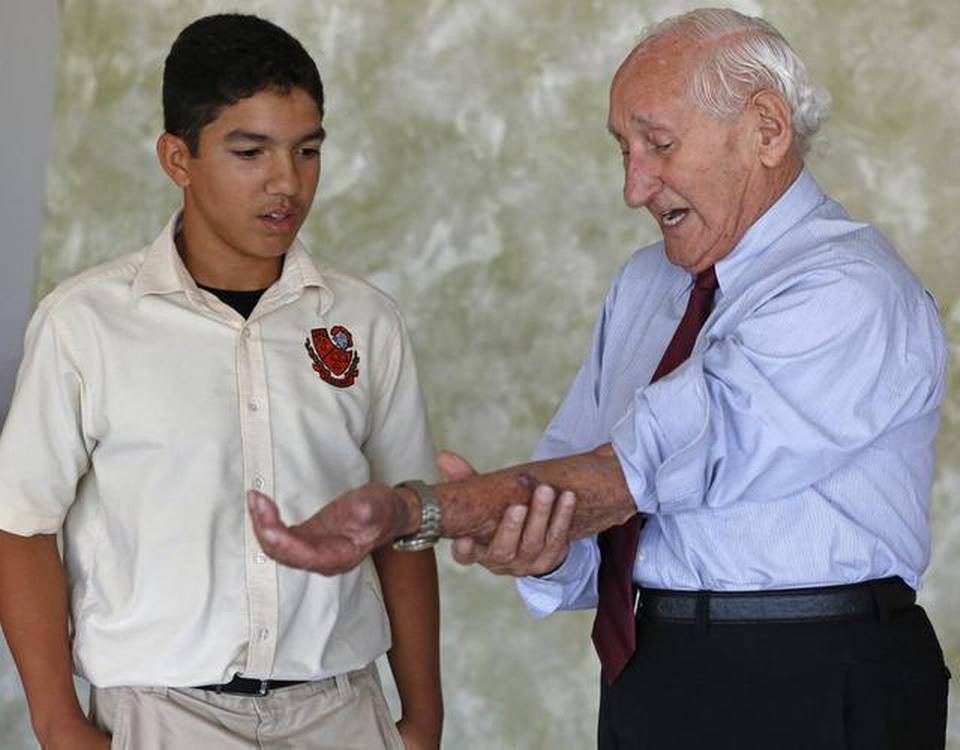 National Spokesmen and Holocaust survivor 99 year old
National Spokesmen and Holocaust survivor 99 year old "The Triumph of Life over Death, the Resurrection of Jesus."-Ronald Reagan
"The Triumph of Life over Death, the Resurrection of Jesus."-Ronald ReaganRecent Posts
The Jerry Russell Civil War Preservation Memorial Award – General Ulysses S. Grant
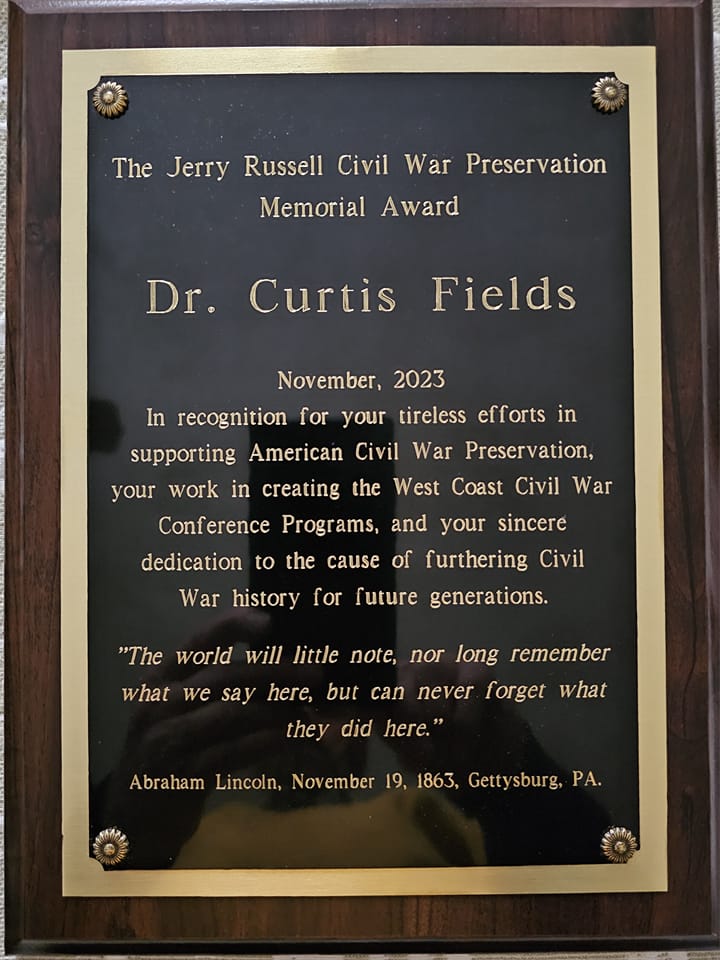
General Grant, “I take a great deal of pride (with an equal dose of humility) to bring to your attention this award given me by the West […]
First National Day of Thanksgiving
First National Day of Thanksgiving on Thursday, December 18, 1777
WTK S1:E16 “What is the Forgotten Story of the Pilgrims’ SECOND Thanksgiving?”
(Chapter 11 page 151 of “Forgotten American Stories: Celebrating America’s Constitution”)
Click here to listen:
Historian Arch Hunter & Author Lydia Nuttall talk about Forgotten American Stories & […]
Veteran Steve Green Helps Kids Plant Milkweed Seeds
In South Bend, Judy Frazier and the participants of the youth program she initiated, We the Kids, distributed 11 milkweed plants and approximately 20 bags of milkweed seeds in June during the WNIT Kids Club […]
Winner WTK Liberty Player Elizabeth C – Tea Party Youth Constitution Challenge – 2023
Tea Party Youth Constitution Challenge – 2023
NATURAL LAWS by Elizabeth C and How They Influenced our Founders as They Created the US Constitution
What are Natural laws? Natural laws are a body of unchanging moral principles […]


